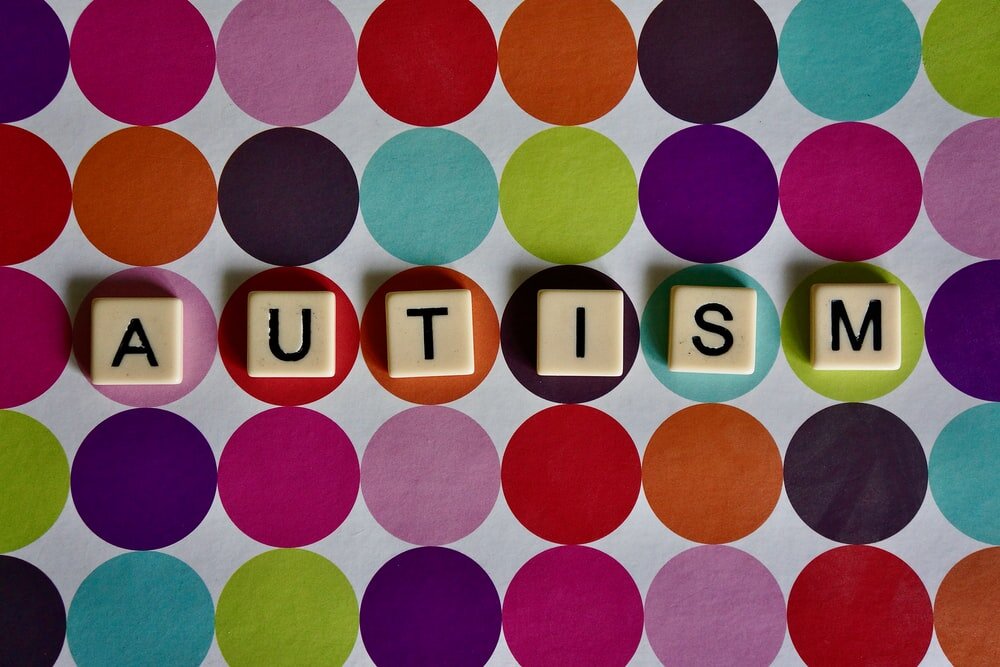The Challenge of Being Autistic and Working in the NHS
The NHS is considered to be one of our greatest national achievements — and rightly so. The provision of free, accessible healthcare for all has saved and improved the quality of countless lives. I am proud to work for the NHS and contribute to its work, especially during the recent Covid pandemic. However, my experience as an NHS employee has not all been positive, and this is mainly due to my neurological differences as an autistic individual.
Autism is the most underrepresented disability in the workforce, with just 16% of autistic individuals in full-time employment. Many of these individuals fulfil roles that do not truly reflect their expertise and skill level. Whilst I mention autism as a disability in this article, and it is often classified as such in measures of equality and diversity, it is worth acknowledging that many autistic individuals do not consider themselves to be disabled. Instead, they would argue that the barriers created by inflexible societal constructs cause them difficulties in their daily lives.
The NHS is not unique in its failings to fully support and embrace autistic employees. However, as one of the largest employers in the world and as a leader in healthcare, it arguably holds a responsibility to lead the way in creating an inclusive workforce that represents the diverse community it serves.
Autism and Me
As I try to put into words the autistic experience, I am reminded of the quote: “If you have met one autistic person, then you have met one autistic person”. What follows is just one account of the autistic experience — mine.
For me, autism is a part of who I am, and it cannot be separated from me as a person. It influences how I experience and interact with the world, including how I see, hear, feel, think, and communicate. My late diagnosis has in no doubt shaped my understanding and view of myself as an autistic individual. The impact of this cannot be underestimated, but this, perhaps, is a conversation for another day.
The common misconception surrounding autism is that an autistic individual is unable to comprehend emotion; we are entirely practical beings — this is simply not true. If anything, I feel everything so intensely that it can be difficult to separate one feeling from another and tolerate the constant barrage of emotions and sensory inputs. As a result, I can get overwhelmed and struggle to process all the information flooding through my nervous system. To cope, I may shut down, and this contributes to the misconception. Alternatively, I try to anchor myself with structure, familiarity, and routine.
It would be impossible to articulate the full autistic experience, its challenges, and its gifts, especially within this article. I hope, however, that this gives you a little insight and understanding and that it may even inspire some of you to explore autism further. There are many great resources if you choose to do this, including those provided by the National Autistic Society.
Disability and Inclusion, Workplace Challenges
It is said the NHS relies on the goodwill of its staff to survive — to some extent, this is true. When the work you do is the difference between life and death, good quality of life or a poor one, it is not surprising that staff make sacrifices to ensure the best service and care for patients. This, however, is simply unsustainable, especially given the additional pressures and demands on the NHS at present.
Without a system that empowers staff to meet both their own needs and those of patients, the NHS will continue to suffer from high levels of burnout, fatigue, sickness, and an increase in staff ultimately leaving their positions. In addition, for disabled staff members, the workplace simply becomes inaccessible.
Whilst I am privileged to have worked beside such knowledgeable, skilled, and dedicated colleagues, I have encountered substantial difficulties advocating for reasonable adjustments and gaining acceptance as an autistic colleague. Reasonable adjustments are not “special treatment”, and I am not being demanding, as I have been accused. These adjustments are there to remove or minimalise the disadvantages of my disability and enable me to fulfil my role to the best of my ability whilst maintaining my health and wellbeing.
Being Autistic In The NHS
It is difficult to comprehend the disparity of an organisation supporting a diverse community and yet demonstrating such ignorance regarding its staff. When I was asked to not talk about my autism, I was shocked and hurt. My autism is me, and to be barred from talking about it sent me a message that who I am is not ok. I could talk about how damaging that is for me, but it is irrelevant. It is wrong for anyone to ask me to repress my autism, just as it is wrong for anyone to ask someone to repress their faith or sexuality.
This, sadly, was not the end of my difficulties. I was invited to join the Disabled Staff Network, and I wanted to discuss the possibility of taking time out to attend the next meeting, offering to make the time up in whatever way management thought best. However, on approaching the person responsible for staffing issues, I was informed that they did not want any disability-related involvement, as they knew nothing about it. It was then suggested that managers in other departments be approached to see if they were willing to deal with my request.
I felt like Oliver Twist being paraded for sale through the streets. I am not a burden — I am a capable colleague that happens to require a little additional support. I am a member of the team who cannot be ousted off elsewhere just because you are uncomfortable with addressing disability issues. If there is something that you do not know, ask, look for resources, seek out advice.
Eventually, my reasonable adjustments were signed off, although there are still adjustments that have yet to be implemented. The lack of accommodation to enable me to navigate my autistic challenges and fortify my autistic strengths in the workplace has not been ideal. It has, however, been much more problematic to encounter an environment that is hostile because I am autistic.
I pride myself on my enthusiasm and give my all to my work, but this had been impossible to maintain when I have felt unable to be myself. My confidence in myself and my communication has been dented, and, as a result, my anxiety is heightened and my mood low. The workplace is becoming inaccessible.
Disability Inclusion In The NHS: Where Do We Go From Here?
It is clear that current systems are sufficiently ineffective in fostering inclusive, accessible work environments. The first challenge lies in identifying where change is needed. For example, I was surprised to learn that there is no centralised monitoring of reasonable adjustments within my NHS Trust. This is due to concerns surrounding the storage and ethical use of confidential staff information. Whilst these are valid concerns, it is essential to measure and assess reasonable adjustment compliance and success to highlight areas for improvement.
As Occupational Health services are available across all NHS Trusts, delivering a confidential service for staff, it is worth questioning why a similar system cannot be utilised to monitor reasonable adjustments. Furthermore, opportunities to gather useful data in Equality and Diversity reports are missed. For example, despite a diverse range of disabilities and a large organisational structure, only a single figure for the proportion of disabled staff within the organisation is provided.
It is, therefore, likely that autism will continue to be underrepresented in the workplace. Moreover, opportunities for shared learning, where lessons can be drawn from the success or failings of other departments, are lost.
The term ‘awareness’ is used a lot in relation to disability and is also relevant here. For example, although I declared my disability throughout the application and recruitment process, I was not informed of the reasonable adjustment policy or Disabled Staff Network. My access to support was, therefore, delayed.
I, however, also found that my management was unaware of these systems of support. As such, I was forced into the uncomfortable position of advocating for myself and defending myself for doing so, appearing demanding. Management’s unfamiliarity also contributed to their resistance and unwillingness to engage in a discussion around disability.
I have been able to raise my concerns with the Equality, Diversity, and Inclusion Lead through the Disabled Staff Network. As a result, the Trust is committing to providing this information to newly disabled employees and offering training to their managers on recruitment. I am pleased that these actions are being taken, and I am grateful to have the opportunity to voice concerns and campaign for change. This is just the beginning, though, and there is much that still needs to be done.
Previously, I expressed concern over the sacrifice of staff needs to meet patient needs within the NHS. Although this is detrimental to all staff, the impact is felt more acutely by disabled staff because their needs are often greater, and it builds resentment towards those seeking to have their own needs met.
It is difficult to overhaul such a deeply embedded culture. However, I cannot help but wonder whether there is a way to navigate reasonable adjustments without alienating disabled staff. For example, would it not be beneficial to consider adjustments to support all staff, disabled or not, to some degree? In addition to reducing absence, could this not be an opportunity to improve staff efficiency?
The question of how reasonable adjustments are is always going to consider the individuals level of need and the organisations. As such, there will be an unavoidable disparity in the adjustments made for individual staff members. If we opened up this policy to all staff, however, we remove the stigma from accessing these policies and create an inclusive culture that seeks to support all staff to perform to the best of their ability without detrimental effect.
This does not have to be complicated. Many organisations will already have annual performance reviews in which adjustments could be explored — perhaps it is time we began exploring them.
Written by Chantelle Minchin


